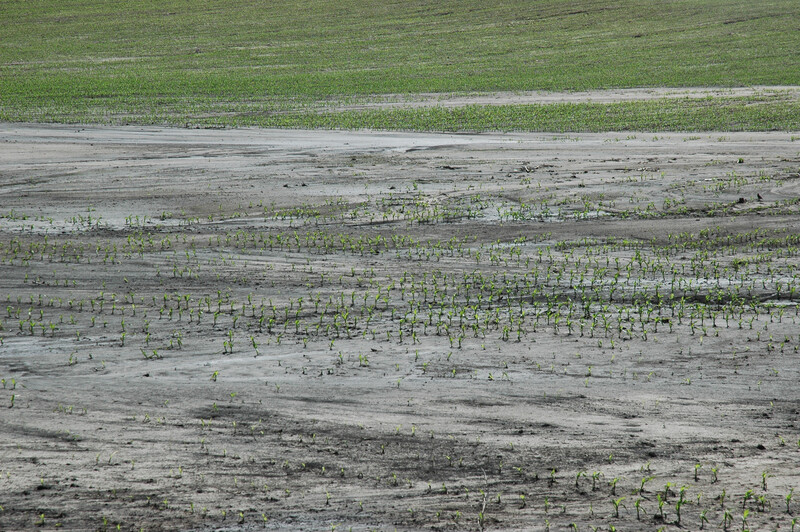
Farmers are still seeing the effects of freeze and frost that occurred just at or over a week ago. This, paired with excessive rainfall in some areas, such as Illinois and Indiana, could mean that more people will need to replant.
“Over the past 10 to 15 days we’ve had some cold temperatures that lead to frost—and now we have over three inches of rain on the ground,” says Erich Eller, owner of ForeFront Ag Solutions in Indiana. “A lot of people are talking about stand counts.”
If you have corn still standing and made the decision to replant the whole field, it’s a good idea to terminate the original stand. The original plants will compete with the new plants for water, sunlight and nutrients, and could do more damage than good to leave them there.
Here are a few tips on how to evaluate for replant.
When tearing out corn fields first consider what trait packages you have. Here are a few tips from University of Tennessee Extension for replanting corn:
- Tillage: Use an aggressive method to keep the first-planted corn from re-routing. No-till or highly erodible fields might not be able to use this method.
- Non-GMO/Conventional Corn: Spray glyphosate but watch for soil residual if replanting to non-traited corn.
- Roundup Ready: Use glufosinate, paraquat with metribuzin or Select Max (or the same herbicide group by another name) to decimate corn.
- Roundup Ready and Liberty Link: Paraquat with metribuzin and Select Max. Note, there is a six-day waiting period when using Select Max, which can be left out if earlier planting is needed.
Work with your local agronomist or chemical sales rep to find what works best for your fields and your rotations.
Read more agronomy news here:








 User Center
User Center My Training Class
My Training Class Feedback
Feedback












Comments
Something to say?
Log in or Sign up for free